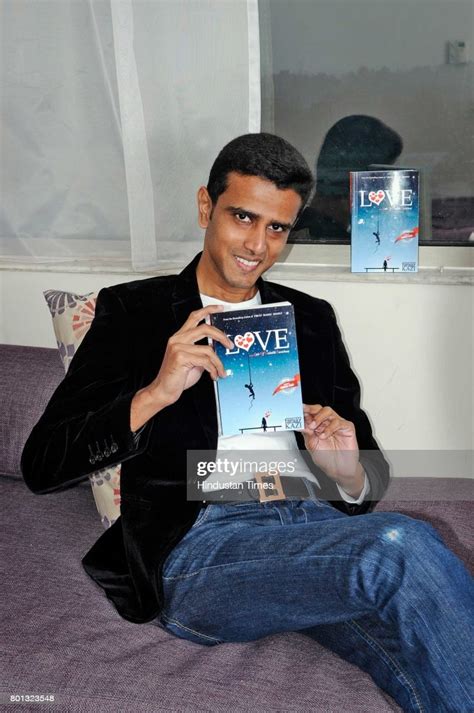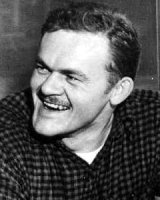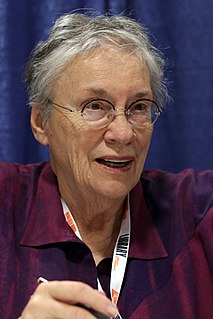A Quote by Faraaz Kazi
Love? he asked himself, giving no sense of recognition for that word in the dictionary of his mind. It was the only battle he had lost in life, the only thing that had been snatched away from him, before he could even claim it.
Related Quotes
A child blind from birth doesn't even know he's blind until someone tells him. Even then he has only the most academic idea of what blindness is; only the formerly sighted have a real grip on the thing. Ben Hanscom had no sense of being lonely because he had never been anything but. If the condition had been new, or more localized, he might have understood, but loneliness both encompassed his life and overreached it.
she, with her affection and her gaiety, had been largely responsible for him having rediscovered the meaning of life, her love had driven him to the far corners of the Earth, because he needed to be rich enough to buy some land and live in peace with her for the rest of their days. It was his utter confidence in this fragile creature, that had made him fight with honor, because he knew that after a battle he could forget all the horrors of war in her arms, and that, despite all the women he had known, only there in her arms could he close his eyes and sleep like a child.
Each memory was brought to life before me and within me. I could not avoid them. Neither could I rationalize, explain away. I could only re-experience with total cognizance, unprotected by pretense. Self delusion was impossible, truth exposed in this blinding light. Nothing as I thought it had been. Nothing as I hoped it had been. Only as it had been.
He ran as he'd never run before, with neither hope nor despair. He ran because the world was divided into opposites and his side had already been chosen for him, his only choice being whether or not to play his part with heart and courage. He ran because fate had placed him in a position of responsibility and he had accepted the burden. He ran because his self-respect required it. He ran because he loved his friends and this was the only thing he could do to end the madness that was killing and maiming them.
His youth seemed never so vanished as now in the contrast between the utter loneliness of this visit and that riotous, joyful party of four years before. Things that had been the merest commonplaces of his life then, deep sleep, the sense of beauty around him, all desire, had flown away and the gaps they left were filled only with the great listlessness of his disillusion.
He was about to go home, about to return to the place where he had had a family. It was in Godric’s Hollow that, but for Voldemort, he would have grown up and spent every school holiday. He could have invited friends to his house. . . . He might even have had brothers and sisters. . . . It would have been his mother who had made his seventeenth birthday cake. The life he had lost had hardly ever seemed so real to him as at this moment, when he knew he was about to see the place where it had been taken from him.
It suddenly made sense. Only twice in his life had he felt this inexplicable, almost mystical attraction to a woman. He’d thought it remarkable, to have found two, when in his heart he’d always believed there was only one perfect woman out there for him. His heart had been right. There was only one.
He had thrown himself away, he had lost interest in everything, and life, falling in with his feelings, had demanded nothing of him. He had lived as an outsider, an idler and onlooker, well liked in his young manhood, alone in his illness and advancing years. Seized with weariness, he sat down on the wall, and the river murmured darkly in his thoughts.
Up until then it had only been himself. Up to then it had been a private wrestle between him and himself. Nobody else much entered into it. After the people came into it he was, of course, a different man. Everything had changed then and he was no longer the virgin, with the virgin's right to insist upon platonic love. Life, in time, takes every maidenhead, even if it has to dry it up; it does not matter how the owner wants to keep it. Up to then he had been the young idealist. But he could not stay there. Not after the other people entered into it.
How did it happen that now he could see everything so clearly. Something had given him leave to live in the present. Not once in his entire life had he come to rest in the quiet center of himself but had forever cast himself from some dark past he could not remember to a future that did not exist. Not once had he been present for his life. So his life had passed like a dream. Is it possible for people to miss their lives the way one can miss a plane?
Poor, unhappy Erik! Shall we pity him? Shall we curse him? He asked only to be 'some one,' like everybody else. But he was too ugly! And he had to hide his genius or use it to play tricks with, when, with an ordinary face, he would have been one of the most distinguished of mankind! He had a heart that could have held the entire empire of the world; and, in the end, he had to content himself with a cellar. Ah, yes, we must need pity the Opera ghost.
In the end, therefore, money will be the one thing people will desire, which is moreover only representative, an abstraction. Nowadays a young man hardly envies anyone his gifts, his art, the love of a beautiful girl, or his fame; he only envies him his money. Give me money, he will say, and I am saved...He would die with nothing to reproach himself with, and under the impression that if only he had had the money he might really have lived and might even have achieved something great.
I didn't have a chance to buy you anything," she said, then held both closed hands toward him. Uncurled her fingers. In each cupped palm a brown egg. He took them. They were cold. He thought it a tender, wonderful thing to do. She had given him something, the eggs, after all, only a symbol, but they had come from her hands as a gift. To him. It didn't matter that he'd bought them himself at the supermarket the day before. He imagined she understood him, that she had to love him to know that it was the outstreched hands, the giving, that mattered.
Westley closed his eyes. There was pain coming and he had to be ready for it. He had to prepare his brain, he had to get his mind controlled and safe from their efforts, so that they could not break him. He would not let them break him. He would hold together against anything and all. If only they gave him sufficient time to make ready, he knew he could defeat pain. It turned out they gave him sufficient time (it was months before the Machine was ready). But they broke him anyway.
































